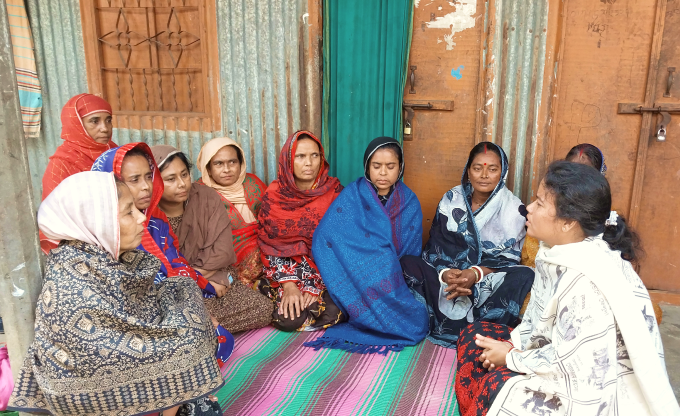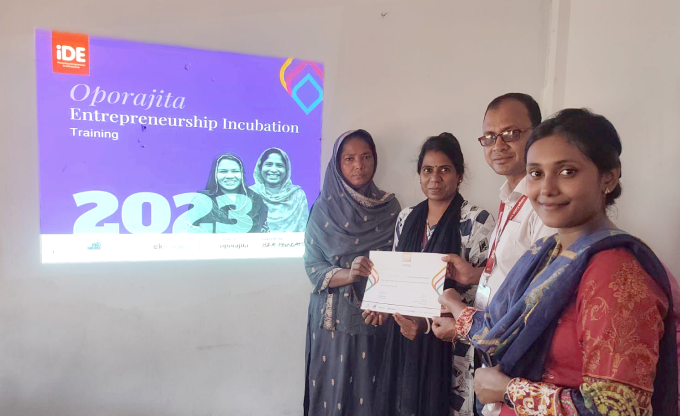



iDE’s goal for Oporajita is to improve the entrepreneurial capacity of 1,500 out-of-work women garment workers (WGWs) and increase their household incomes by 50% by 2024, particularly those located in the Dhaka division (Gazipur, Savar (Ashulia), and Narayanganj). This initiative aims to have two major outcomes, firstly, to ensure out-of-work WGWs are able to access and utilize appropriate enterprise development services, which enables them to start and/or further improve their business in target sectors. Secondly, the out-of-work WGWs are able to utilize, access, and uptake a range of critical financial products, services, capacity-building measures, and digital/analog marketplaces to enhance their businesses.


iDE is an international NGO with 40 years of experience in designing and delivering market-based anti-poverty programs in 11 countries. We are a world leader in making markets work for the poor as well as the longest-established market development specialist NGO in Bangladesh. iDE believes markets can be a powerful force for improving smallholder prosperity by creating income and livelihood opportunities for poor rural households. iDE Bangladesh currently has eight projects in agricultural markets, water, sanitation, and hygiene (WASH), and access to finance with a focus on women’s economic empowerment and climate-smart technologies.
iDE has a strong Women’s Economic Empowerment portfolio that works towards promoting women’s entrepreneurship and improving the enabling environment to increase the economic participation of rural women through improved connections to market systems as well as strengthening the resilience of rural and peri-urban women SMEs to overcome economic shocks. Riding on its vast experience in Market Systems Development, iDE engages in various intervention areas in the market systems sphere such as capacity building, forward and backward market linkages, honing business strategy and marketing and financial management, and ensuring access to finance, while partner agencies work in tandem to promote gender equal norms within families and communities, elements of decent work facilities at the workplace and support in policy advocacy.


